Projects/Loyalty/BASF Omnichannel Loyalty Mini Program & Reach Optimization
In this IT Consultis case study, we'll discuss how we helped BASF expand its reach to less tech-savvy markets in China.
About The Client: BASF
BASF is a well-known German multinational chemical conglomerate. It ranks among the Global Top 50 as one of the largest chemical producers in the world, contributing to nearly all sectors in almost every country.
With many key chemical manufacturing sites in critical locations in China, such as Shanghai, Nanjing, and Chongquing, BASF is a very important foreign investor figure in the Chinese chemical market.
This connection was further deepened as BASF reached out to the digital transformation consultancy IT Consultis (ITC) to improve their agricultural business in Asia and tap into a promising yet under-served market in Mainland China.
Objectives
The project helped solve the industry-specific problems that BASF faced in the Chinese market - targeting an audience with more limited technological adoption.
Moreover, BASF also faced key challenges that many B2B2B2C and B2B2C businesses suffer from, which include the lack of:
- Loyalty and O2O incentives to nurture the relationships between the sales reps and the customers, promote distributors’ buy-in and order restocking, and boost sales
- Insights on the end consumers to improve services
By providing a data-driven digital transformation strategy in China, the project aimed to:
- Enable the local Chinese farmers to get the best experience with BASF products and digital educated content
- Drive traffic to offline stores (O2O) through multiple ways of engagement
- Directly capture data and nurture the relationship between the farmers and BASF sales reps, ultimately driving loyalty and conversion
- Increase the efficiency of BASF sales reps’ and marketing work
Solutions For BASF
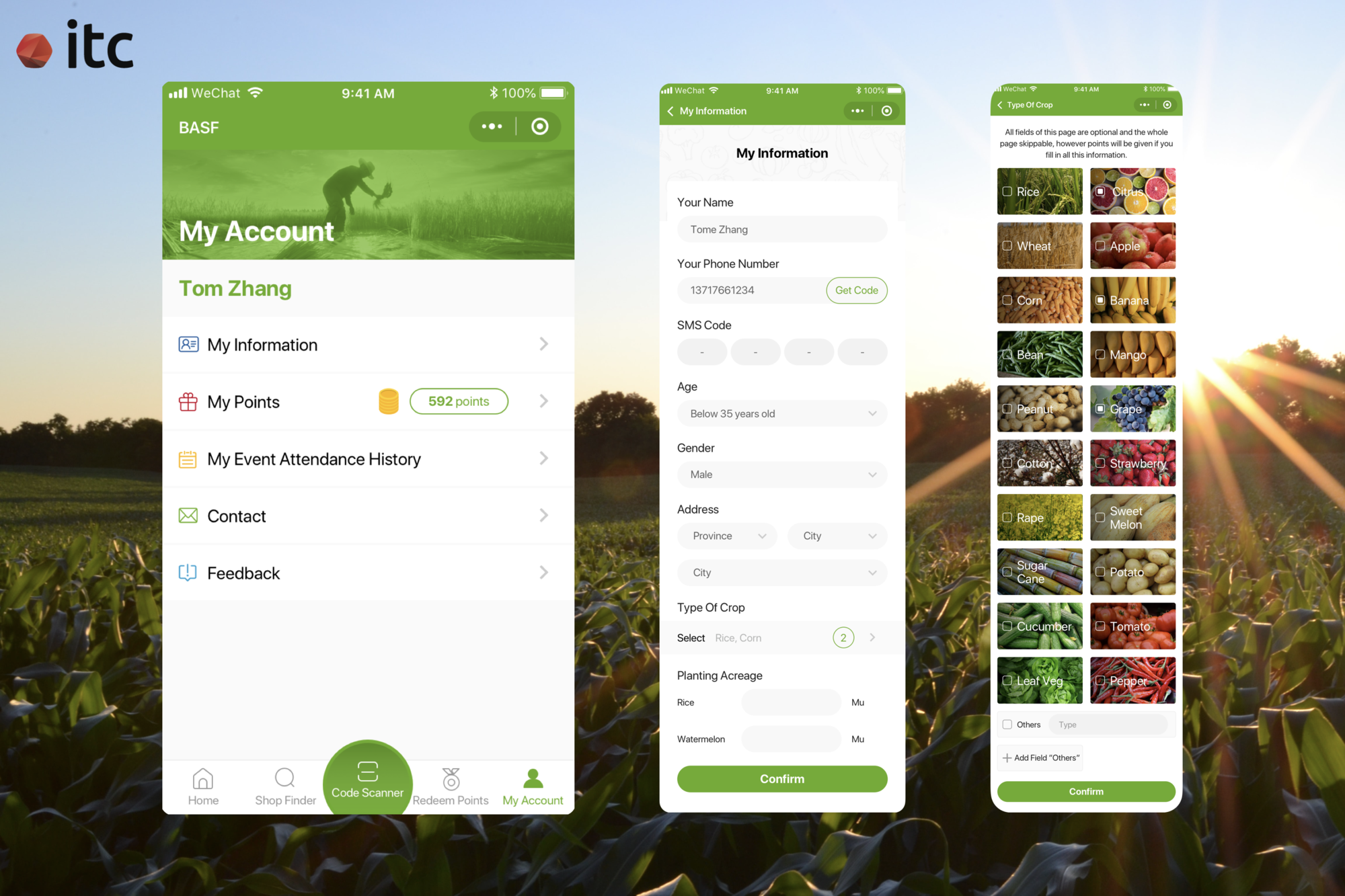
To approach this, technological solutions with localized features were adapted across the markets to digitally transform BASF by:
- Developing a Laravel-powered WeChat Mini Program for China and a Hybrid App for the ASEAN market, ensuring functional, visual, and legal adaptability
- Modifying UX/UI for different markets with a standardized design style
- Creating practical store locators for each region based on the local logistic situations
- Personalizing product usage calculation and recommendation for each farmer
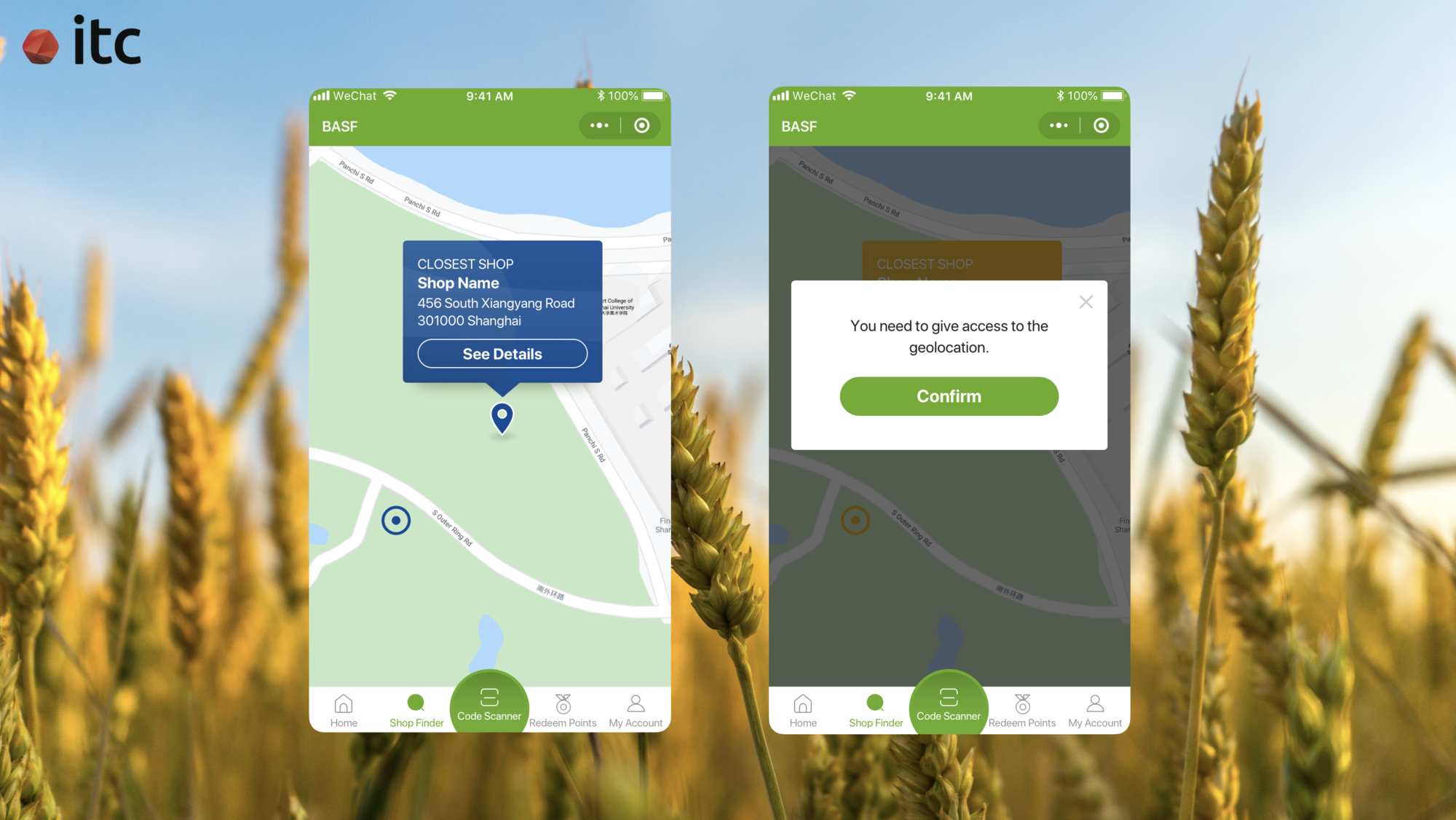
The tailor-made BASF WeChat Mini Program was integrated with all necessary digital functions. This allowed the brand to smoothly lead the incredibly niched target market through an omnichannel journey.
The features include:
- An easy-to-use QR code technology to accumulate points from in-store purchases
- An intuitive and interactive map for O2O move
- Incentivizing loyalty program which rewards points for transactions, events attendance, and other engaging activities
- Educational videos that come with the product catalog
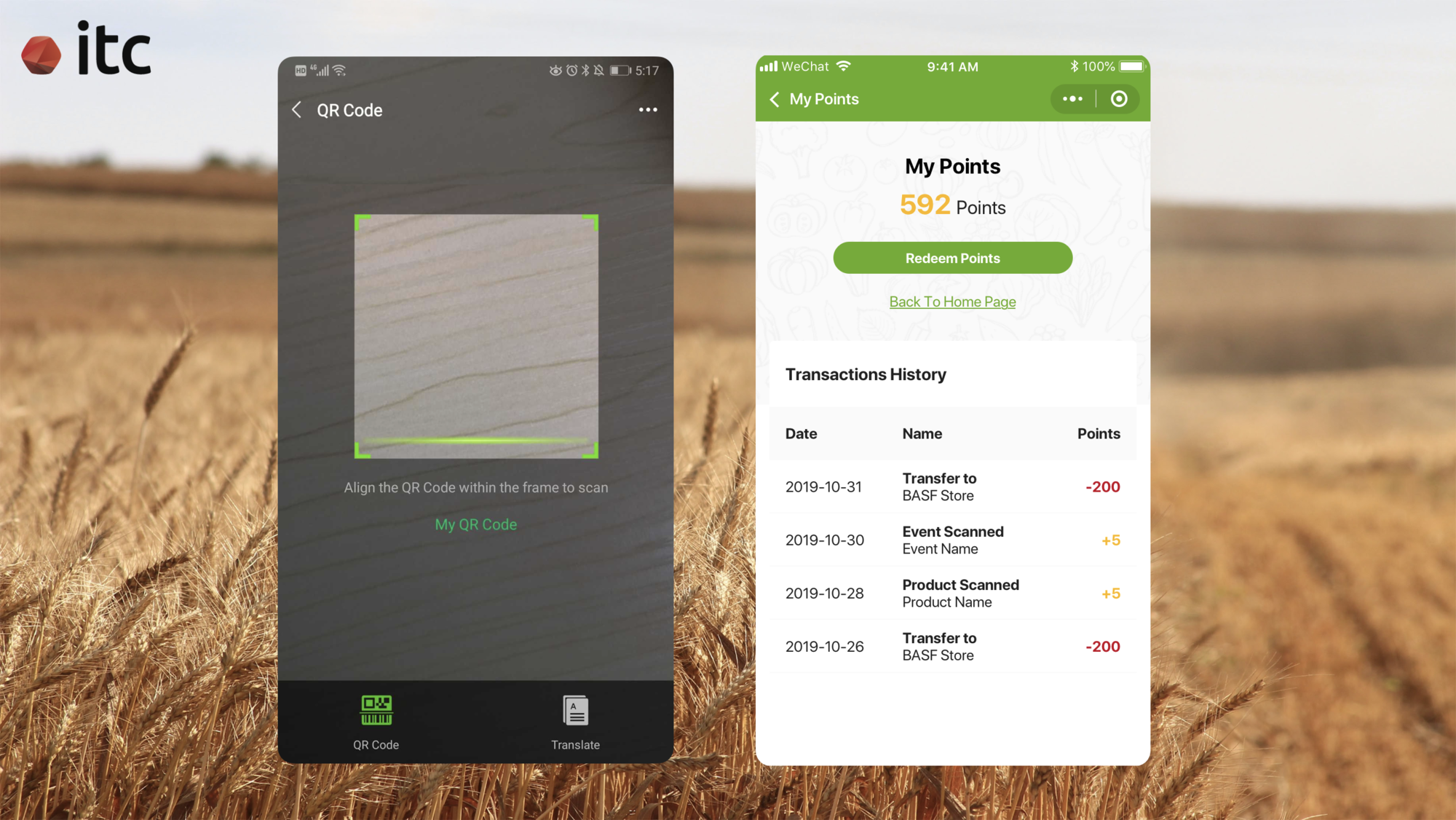
Moreover, the BASF Mini Program had a segmented User Interface for different target audiences. Thus, BASF could enhance the user experience and directly capture up-to-date feedback from its consumers.
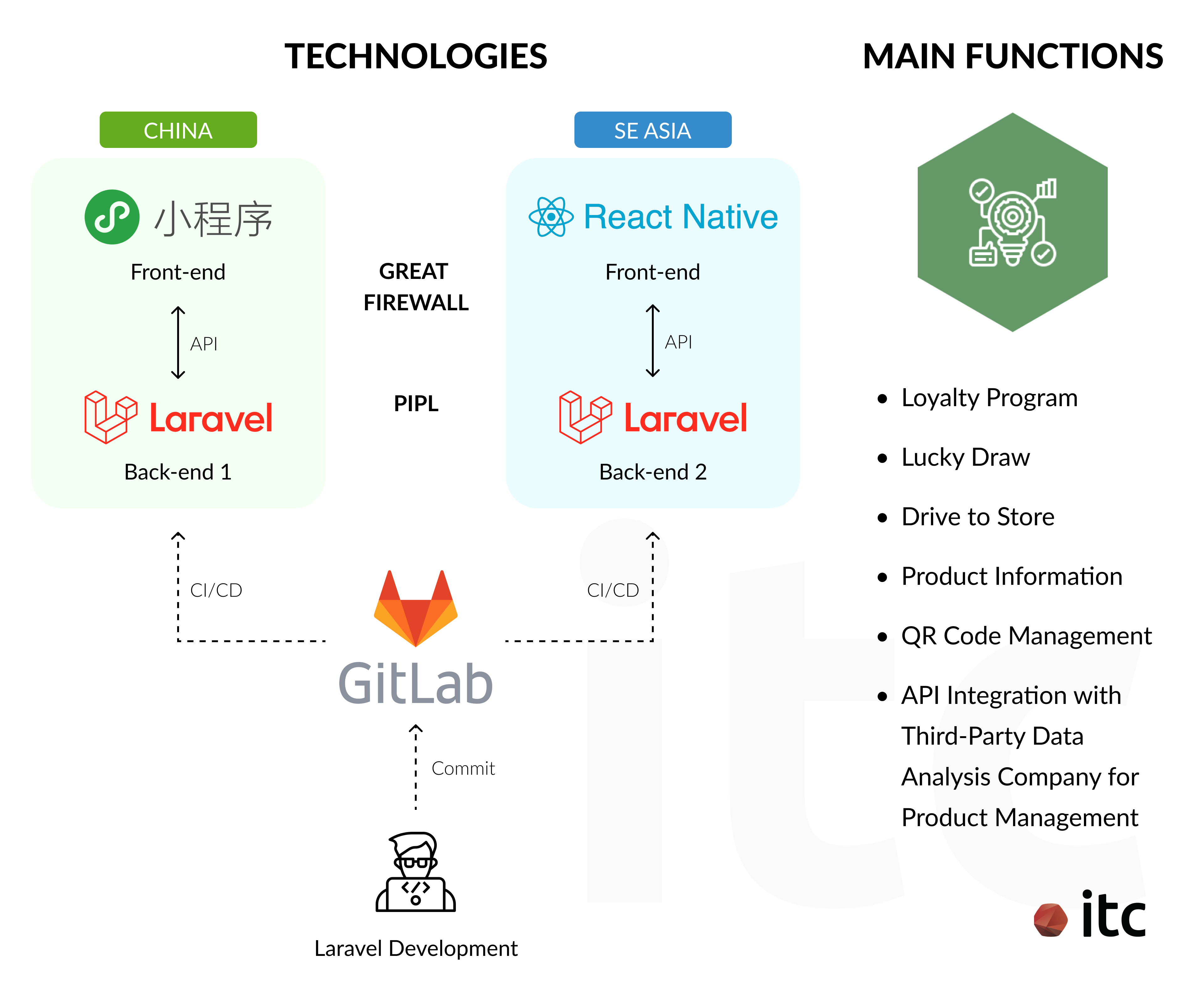
In terms of the tech stacks, there were 2 frontend systems for this project - the WeChat Mini Program Interface for China and ReactJS for the Southeast Asian market - and 1 backend framework Laravel.
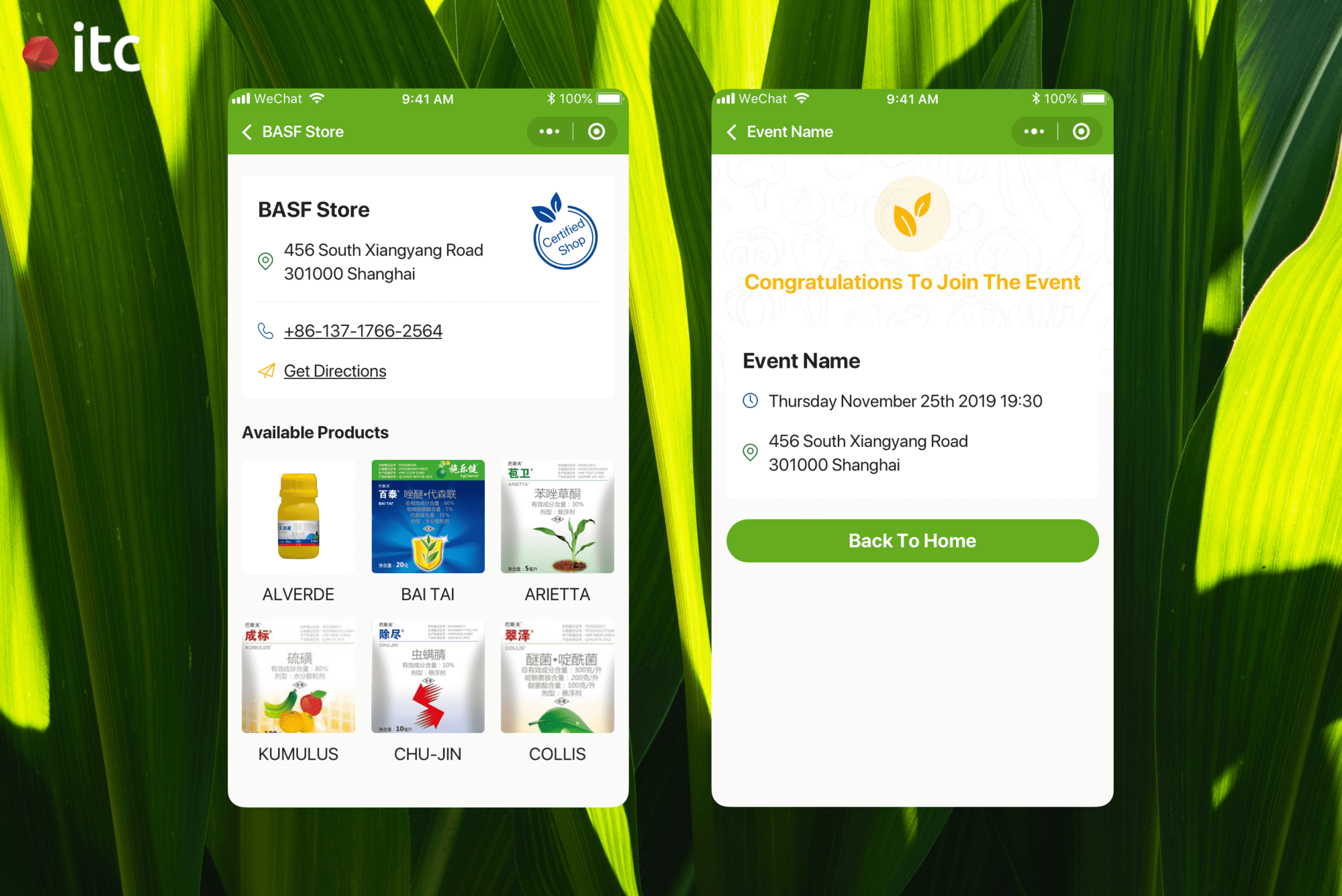
Results
In only 5 months after the WeChat Mini Program and the Hybrid App went live, BASF had already reached its ROI.
As of August 2021, the brand had managed to onboard a few hundred thousand farmers with a double-digit Month-on-Month (MoM) active users growth rate.
Furthermore, the platforms successfully improved the relationship between BASF sales representatives and customers, evidenced by the MoM increase in Sales KPIs and the impressive number of recorded QR code scans reaching 7 digits.











